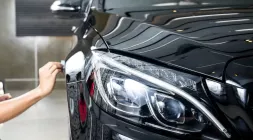12 Things about Tire Maintenance That Every Car Owner Should Know
Read to know the importance and benefits of tire maintenance.
In this modern era, you would rarely see people walking around to get to their destination. People would invest in cars as they deem it as a practical and reasonable means of transportation. Cars are like machines that need careful inspection and maintenance. Also, the care should also be extended up to its parts like the engine or its tires. This article would focus on things every car owner should know about tire maintenance. Tires are the one part in a car that directly hits the road. If not maintained properly, it can lead to a lot more damage, costing you even more and worse, increasing your risk of road accidents.
Before dropping into the subject directly, one may ask as to why maintaining a tire is essential. Here at Philcarnews.com, we provide you with an elaborate explanation as to why tires should be maintained.
1. Extending your tire lifespan
When a person maintains tires regularly and accordingly, he’ll continue the usable lifespan of a car’s tires. For example, periodically checking its pressure to make sure it is correctly inflated can show the importance of doing so, in a more practical side.
Under-inflated or over-inflated tires will not distribute the wear and tear aspect whenever it hits the road. If a properly inflated tire should last for about 8,000 kilometers, an over or under-inflated one could potentially last up to 4,800 kilometers. When this happens, you will end up buying tires frequently.
2. Saving money for fuel
The study shows that under-inflated tires are the main reason for excess fuel. Why is this so? Under-inflated tires have a higher rolling resistance which means that the engine exerts more effort than what it usually does when traveling on an under-inflated tire.

Under-inflated tires cost more fuel
3. Safety measures
As a responsible car owner, a person should not only be accountable for his safety but of others as well. A road accident by a negligent car owner can cause disturbance and trouble for other people that are sharing the road. A tire's air pressure is vital when it comes to a car's braking and handling.
When traveling with an under-inflated tire, it can rapidly cause tire heating and can be instantly damaged. Before a long trip, it is advisable to check a tire's air pressure to avoid such instances. Also, one should be aware of the maximum load a tire could cope up with. When a car is overloaded, the tires could rapidly heat up and explode while on the road.

Always check your car's overall condition before traveling
Furthermore, when a car is driving too fast and too often, this will wear the tire immediately. Respecting the road's speed limits and driving at a reasonable speed should be observed at all times. If tire damage has been noticed, replace it immediately with a spare or a new one.
Tire maintenance comes in many steps and procedures, however, here are some of the most basic ones that a car owner can do in his own.
4. Inflation pressure should be maintained
Checking or monitoring of the tire inflation pressure should be done at least once a month, every month. Car owners should consistently check on this earlier because it will affect the tires' performance, affect the usage of fuel and can also affect the safety of the people inside the car. An accurate tire pressure gauge can aid in correctly measuring the tire pressure.
>>> Also check out:
- When should you rotate your car tires?
- [Video] Step-by-step instructions on how to change your car tires

Regularly check and monitor tire inflation pressure
5. Inflation pressure should be at recommended levels
A tire always comes with its recommended inflation pressure level. It can be found on the car's manual and should be utilized as a guide when inflating a tire. Under-inflating it can lead to rapid heat build-up, load capacity reduction, and air loss. Over-inflating it, on the other hand, increases the risk of collision damage.
6. Avoid spinning tires excessively
There are instances where a car is stuck in sand, mud or even snow. Continually spinning tires during these moments increases the risk of tire over-heating and eventually lead to tire explosion and damage. If a person finds themselves stuck in these kinds of situations, forward and backward rocking motion is advised to free the car out of that sticky situation.
7. Always check tires for signs of wear and tear
Tires have a direct point of impact with the road. In time, the friction between these two will lead to wear and tear and tires looking nearly bald or bald. As a car owner, one should know their tires reach a 1.6 mm level regarding remaining tread depth. When you travel on a rainy day with tires that are nearly bald, chances of skidding and puncture-related accidents might occur.

Friction will cause wear and tear of tires
8. Properly mount tires
Refer to the tire’s manufacturer manual for the correct procedure of mounting tires. Severe damage can be done when a person with no sufficient knowledge attempts to do so. In the same note, never mix and match different tire type and sizes for the car. There is a recommended tire diameter to rim diameter set up that every car owner should know.
9. Never overload your vehicle
One way of maintaining tires is not to overload the car. Refer to the vehicle's manual regarding loading capacity. Overloading can increase tire stress and affect the vehicle's performance.

Overloading can cause tire stress
10. Consistently rotate tires
To maintain tires, one must also rotate them. Front tires usually wear faster than rear tires since it carries more load than rear ones. Regarding frequency, refer to the manual on how long should a car owner wait until he rotates the rear and front tires. Also, directional and non-directional tires have a different process when turning it.
11. Check the age of tires
Why is there a need to check the age of tires? The longer or older the tire is, the higher the chance of tire explosions and damage. One can identify the age of a tire by reading the DOT numbers on a tire’s sidewall.
12. Maintain good suspension system
A car's suspension system is the one responsible for maintaining the tires on the road. A car's suspension and tires are closely related regarding car performance. When any of this breaks down, it will affect the car negatively.
>>> Click to get more useful tips and advice for your car maintenance
Tag:
tire maintenanceRECENT ARTICLES








